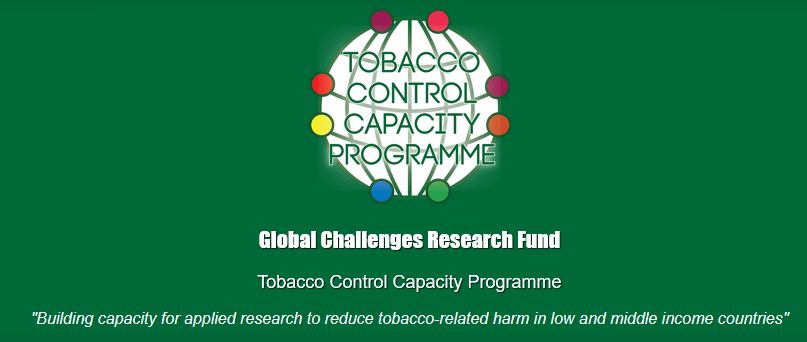REEP Project Researchers: Prof Corne van Walbeek, Dr Chengetai Dare and Dr Hana Ross
Project Partners: The Cancer Research UK (CRUK), Global Challenges Research Fund (GCRF) and University of Edinburgh
Purpose: Study the impact of tax and price policy on illicit cigarette trade in selected low and middle income countries.
Tobacco Control Capacity Programme (TCCP)
The TCCP was a large collaborative project, organised and coordinated by the University of Edinburgh. The TCCP consisted of a large number of African researchers and some from the Indian subcontinent. In this collaboration, REEP functioned as the “excise tax specialist” and the other partners were the “junior partners” on tobacco tax. After the project ended, Chengetai Dare, Corné van Walbeek, and Nicole Vellios collaborated with colleagues in India to publish a paper on the media reporting of the 2020 Covid-19 tobacco sales ban in South Africa.
Background
REEP (formerly ETCP) was chosen by the Cancer Research UK (CRUK) to lead a 30-month project starting in November 2016 under the Tobacco Control Capacity Programme (TCCP) with funding made available by the UK’s Global Challenges Research Fund. The TCCP is a collaborative research project between the University of Edinburgh (as the lead university), a number of UK universities, five African and three Asian research institutions (see https://ukctas.net/overview.html). A crucial aspect of the programme is that it encourages a high degree of interaction between research fellows and their supervisors/mentors across the different countries. The overall aim of the programme is to develop research capacity of early researchers (typically at the postdoctoral level) in tobacco control, with three focus areas: tobacco taxation, illicit trade and industry interference (Article 5.3 of the Framework Convention on Tobacco Control).
Under the TCCP, REEP conducted a number of studies on the effects of taxation on tobacco consumption and also estimated the size of illicit tobacco market, in South Africa. These studies provide empirical evidence on market responses to higher taxes. The studies establish that if tax increases do not substantially change the magnitude and the nature of illicit tobacco trade, such taxes are an effective tool to lower smoking prevalence by lowering demand through higher prices leading to a major improvement in public health.

